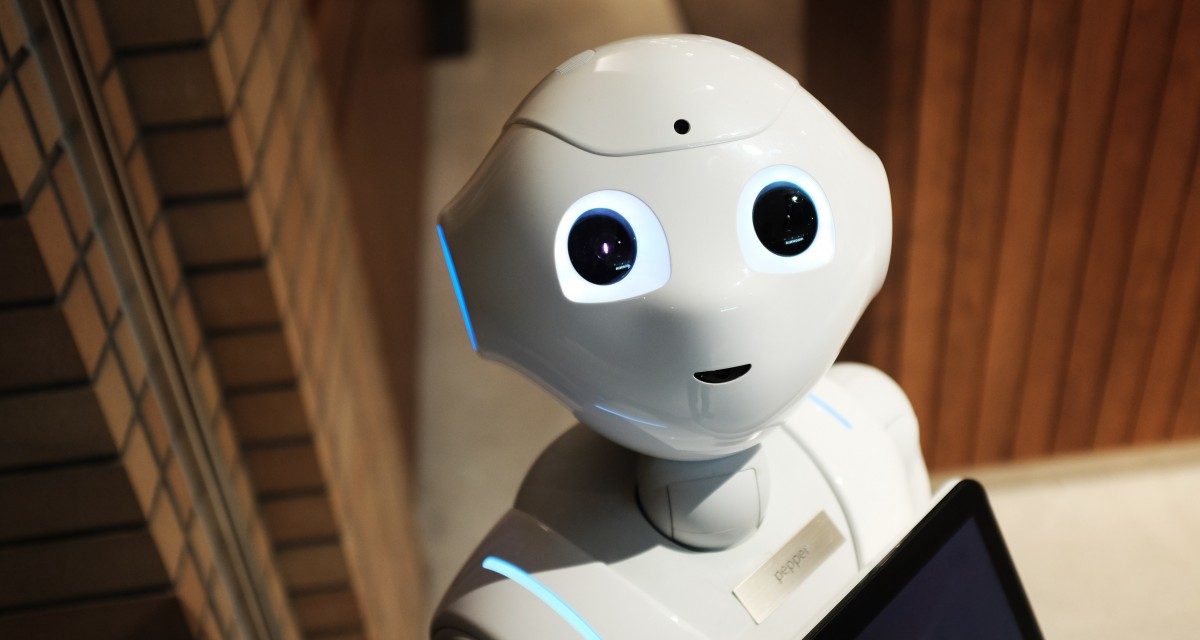When the Robots Take Over – Is AI a looming menace to today’s employment?

By Eric Winkler, Founder and CEO, Ryder EMS

We know that since bad news sells better than good news, any positive points in a story are minimized and the reader receives a bleak, distorted view. Evolutionary psychologists tell us that this fits into the behavioural pattern needed for human survival: while dangers require urgent attention, good news can take its time. If we are to look at what is happening to human society, it is useful to look at some key insights from the past.
Jump into your time machine and travel back 700 years. Step out and inform people that in 700 years, only 2 percent of the population will farm the land. Your audience would be horrified, “Massive unemployment! That’s terrible! How will the rest earn their living?”
You would be hard pressed to explain how those non-farmers have come to live comfortable, healthy lives in today’s economy, how they now make things for each other, entertain each other, care for each other’s health, and teach all of the next generation’s children. And all of this has come about without destroying the old customs and structures, by gradual evolution. Similarly, we can be confident that innovation will open new possibilities, and that society will develop new ways of improving people’s lives.
Within our own lifetimes, we have seen renewable energy evolve from a derided concept to a substantial, growing part of the economy. We have seen a new regulatory and compliance industry founded to ensure that mighty financiers serve society. A generation ago, this was a pipe dream.
When people are perceptive and creative, they observe the opportunities arising in their environment and find ways to put them to use. From new opportunities spring new social needs, and from these spring new jobs. Put time to work, and society will change radically. The last 700 years are just a case in point – the number, variety and quality of our jobs and our lives has increased tremendously in ways that we could not then have imagined.
Today, some fear that elected governments will gradually be replaced by all-seeing, all-knowing computers. That with their vast intelligence and unfathomable wisdom, these metal boxes will transcend human limitations. Not so long ago, a world chess champion was confident a computer could never defeat him or any human. He was mistaken. Today, chess – tomorrow, the world?
Yet computers have not come to rule the world. For one, the world is far more than a chess game. Also, Artificial Intelligence is a cool term but a slick misconception – robots only know what we put into them – there’s no radical extrapolation going on, so we find the AI moniker sliding over to the latest concept on the tech horizon, bubbling just a little out of our reach, which lends to the perception that the robots are always just a little bit smarter than us. So while Artificial Intelligence is indeed advancing, it remains wildly overblown in the media, again to boost sales.
Will robots eventually take over the factories in which they are made, and then march out and with their electronic brains, silicon eyes and titanium muscles take over the world? Robots are no more than electro-mechanical tools equipped with sensors and a microprocessor system. They can perform a set of tasks for which they have been programmed by intelligent beings – us. They are justified to the extent that they help society to be safer and more productive. They improve the productivity of many people, create opportunities for new jobs thanks to their productivity, and extinguish a certain number of low-productivity jobs.
In essence, robots are simply another form of social change.
A wise society will respond by accepting that change brings with it a degree of social restructuring, and to accordingly invest its resources in making that change productive, smooth and dignified for the individuals involved. Since technology is constantly bringing about productivity improvements, allowing each person to achieve more in an hour’s work, will this not reduce the demand for work? Will it perhaps lead us to a nirvana state where we only work a few hours each week and spend the rest of our time making music and socialising? Or will it lead us to a desperate state in which a rich elite is frantically busy, while the rest of us are unemployed and survive on state handouts?
Actually, neither is likely, because both of these models overlook human creativity and ambition, whether it is for a better car or a nicer kitchen, a smarter suit or a medal of recognition.
Over the last 700 years, our societies have changed – profoundly and unimaginably. Yet at any moment in time, change imposes hardship on certain sectors of society. A wise and compassionate society, supported by its government, will extend a helping hand to those people. With that help, many will succeed in transitioning to viable, fulfilling jobs. Others will not, requiring society to support them with dignity through these changes.
In “The travels of a T-shirt in the global economy”, Pietra Rivoli makes the point that there will always be some people who are harmed by even the most benevolent change, and that societies have tools to address these problems. At the level of the community, companies will adapt and enter adjacent processes or businesses. They will seek specific new skills from outside, but mainly look to enhance the skills of its existing staff to retain their knowledge of the business, its suppliers and its customers.
Government can help by encouraging job-creation and getting new employers to move to that community, by building the infrastructure to enable those new employers to flourish there, and by providing the means for people to learn skills for the new types of jobs. Government can also subsidize people to learn skills for new types of job and helping people from that community to relocate to find new jobs. Providing financial and social support for those who are going to be unable to find worthwhile new jobs.
So – is all this effort worthwhile – has it any chance of success?
Over long timespans, we have seen that changes have brought unprecedented levels of employment and well-being.
Over a shorter time span, we have seen how well-meaning prognosticators have got their forecasts wrong time and again, and yet how societies have managed to flourish by embracing, not opposing, change. (Remember, bad news sells!)
As we’ve seen happen in the past, good change lies ahead, and it will improve people’s lives in the long term. It will eliminate some jobs while creating others, and wise communities will help with the transition and uphold people’s dignity, so that when the robots will take over, they will just take over the tedious.
Eric is celebrating the 40th anniversary of his innovative manufacturing company, Ryder EMS, known for its Swiss precision and Chinese scale. Ryder Industries nourishes decades-long relationships with a string of well-regarded brands in North America and Europe.











